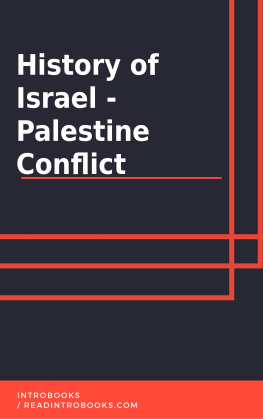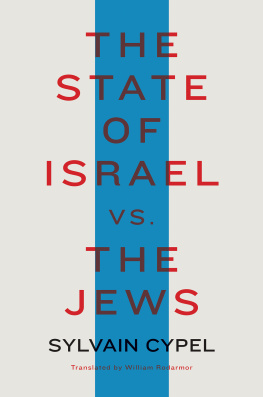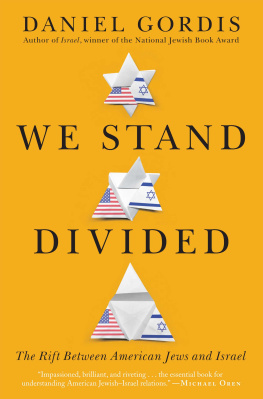
The Ransom of the Jews
This volume was written and published by the author exclusively in his private capacity. The content of the texts from this volume is not connected in any way with the institutions and organizations to which the author was or is affiliated being his sole responsibility in terms of their writing or selection.
Translation of a part of the historical study and of all the documents was done with the support of the Romanian Cultural Institute, Bucharest, Romania.
Published by Rowman & Littlefield
An imprint of The Rowman & Littlefield Publishing Group, Inc.
4501 Forbes Boulevard, Suite 200, Lanham, Maryland 20706
www.rowman.com
86-90 Paul Street, London EC2A 4NE
Copyright 2021 by The Rowman & Littlefield Publishing Group, Inc.
All rights reserved. No part of this book may be reproduced in any form or by any electronic or mechanical means, including information storage and retrieval systems, without written permission from the publisher, except by a reviewer who may quote passages in a review.
British Library Cataloguing in Publication Information Available
Library of Congress Cataloging-in-Publication Data
Names: Ioanid, Radu, author. | Wiesel, Elie, 1928-2016, writer of foreword.
Title: The ransom of the Jews : the story of the extraordinary secret bargain between Romania and Israel / Radu Ioanid ; foreword by Elie Wiesel.
Description: Second edition. | Lanham : Rowman & Littlefield, [2021] | Includes bibliographical references and index.
Identifiers: LCCN 2021015929 (print) | LCCN 2021015930 (ebook) | ISBN 9781538140734 (cloth) | ISBN 9781538140741 (paperback) | ISBN 9781538140758 (epub)
Subjects: LCSH: JewsRomaniaHistory20th century. | RomaniaEmigration and immigration. | IsraelEmigration and immigration. | RomaniaEmigration and immigrationGovernment policy. | RansomRomaniaHistory20th century. | RomaniaHistory1944-1989. | Romania. SecuritateaHistory20th century.
Classification: LCC DS135.R7 I66 2021 (print) | LCC DS135.R7 (ebook) | DDC 325/.24980569409045dc23
LC record available at https://lccn.loc.gov/2021015929
LC ebook record available at https://lccn.loc.gov/2021015930
 The paper used in this publication meets the minimum requirements of American National Standard for Information SciencesPermanence of Paper for Printed Library Materials, ANSI/NISO Z39.48-1992.
The paper used in this publication meets the minimum requirements of American National Standard for Information SciencesPermanence of Paper for Printed Library Materials, ANSI/NISO Z39.48-1992.
In memory of my father, Virgil, who used to tell me that the Communist regime of Romania succeeded where both the Iron Guards and Ion Antonescu had failedin making Romania a country free of Jews.
I am God, your God who took you out of Egypt and out of slavery.
THE FIRST OF THE TEN COMMANDMENTS
Contents
Guide
the idea for this book published first in United States in 2005 belongs to David Singer, director of research at the American Jewish Committee (AJC). It was he who first proposed that I undertake this compelling and challenging research, and the AJC initially sponsored my efforts. Thanks to the dedicated support of this organization and of the United States Congress, I was able to gain access to highly classified Romanian official records in the archives of several intelligence agencies. The AJC also graciously agreed to permit me to transform my research report into a book. Thus I am grateful to the organization in general and specifically to David Singer, Andrew Baker, and David Harris.
Both in Romania and in Israel, my research on this sensitive piece of history raised eyebrows among certain bureaucrats with little understanding of history. They feared the skeletons in the closets of their governments. Despite this attitude, I was able to find in government circles of both countries wonderful friends who helped make this book possible.
In Romania, President Emil Constantinescu and some of his advisers supported my work wholeheartedly. I am grateful to Professor Zoe Petre, the presidents chief of staff, and to Marius Oprea, adviser to the president, for their warm assistance. Both understood immediately the ethical and moral implications of my work and backed it without hesitation. The successive leaderships (under Presidents Constantinescu and Iliescu) of the Romanian Information Service (SRI) declassified and made available to me a great many documents which were crucial to an understanding of the surveillance and repression of the Romanian Jewish community by the Communist secret police, the feared Securitate. I want to thank especially Costin Georgescu and Radu Timofte, directors of SRI, and General Marius Brteanu, the SRIs general secretary, for their efficient help.
The Romanian Ministry of Foreign Affairs, through Mircea Geoan, Romanian ambassador to Washington, and Dumitru Preda, director of the ministrys archives, who helped me find documents that contributed greatly to an understanding of the complex history that I relate in this book.
I am grateful to Dan Badea, a gifted journalist, and to Cornel Burtic, a former Communist leader who willingly left the party leadership. Both enabled me to understand the direct connection between Nicolae Ceauescu and the trade in human beings.
In Romania, I was permitted access to highly classified documents that officially do not exist. I have had to refer to them in the following pages as documents from a Romanian government archive that requested anonymity. Those people who kindly and efficiently helped me see these records understand why I cannot mention their names here.
In Israel, the late Shlomo Leibovici-Lais, formerly with the Liaison Bureau, guided me through the complicated institutional history of the alyah of Romanian Jews to Israel. His humor, wisdom, and deep knowledge of both Israeli and Romanian history were essential in helping me compose this book. He helped me understand a key fact about the Romanian trade in human beingsthat there was more to this trade than simply a matter of finances. The archivist of the state of Israel, Tuvia Friling, made available to me important declassified documents in English and Hebrew; with his newly published book, which I had the privilege to consult in manuscript, they shed new light on Ben-Gurions role during World War II and on the emigration of Romanian Jews to Israel. I am also grateful to Tuvia for putting me in touch with Ephraim Illin, one of the lesser-known heroes of Israel who helped me clarify the financial history of the Romanian Jewish emigration.
A group of distinguished Israeli diplomats offered advice and comment. I am grateful to the late Ambassador Meir Rosenne, former legal adviser to Prime Minister Menachem Begin at Camp David, specifically for his insights on the late Chief Rabbi Moses Rosen. My thanks to Ambassador Yosef Govrin for his comments and subtle analysis of Israeli-Romanian relations during the last years of the Ceausescu regime. Because of Ambassador Govrin, I was able to better understand the human rights dimension of Israeli foreign policy during those years. I also appreciate the wise comments of Ambassador Abba Gefen. The late Yitzhak Artzi, formerly deputy mayor of Tel Aviv and member of the Knesset, gave me interesting leads and documents.
In Great Britain, Phyllis Yadin helped me understand Henry Jakobers role. In the United States, General Ion Mihai Pacepa, former deputy head of Romanian foreign intelligence and the highest-ranking defector in the history of the cold war, condemned twice to death by Ceauescu for his defection, spent many hours guiding me through the organization and history of the Securitate and its trade in human beings. I am grateful to him for his unwavering support. Liviu Turcu, former head of the Western European and, later, the North American department of Romanian foreign intelligence, who defected to the United States early in 1989 and was also condemned to death in Romania, guided me through the Securitates complicated financial operations.
Next page








 The paper used in this publication meets the minimum requirements of American National Standard for Information SciencesPermanence of Paper for Printed Library Materials, ANSI/NISO Z39.48-1992.
The paper used in this publication meets the minimum requirements of American National Standard for Information SciencesPermanence of Paper for Printed Library Materials, ANSI/NISO Z39.48-1992.